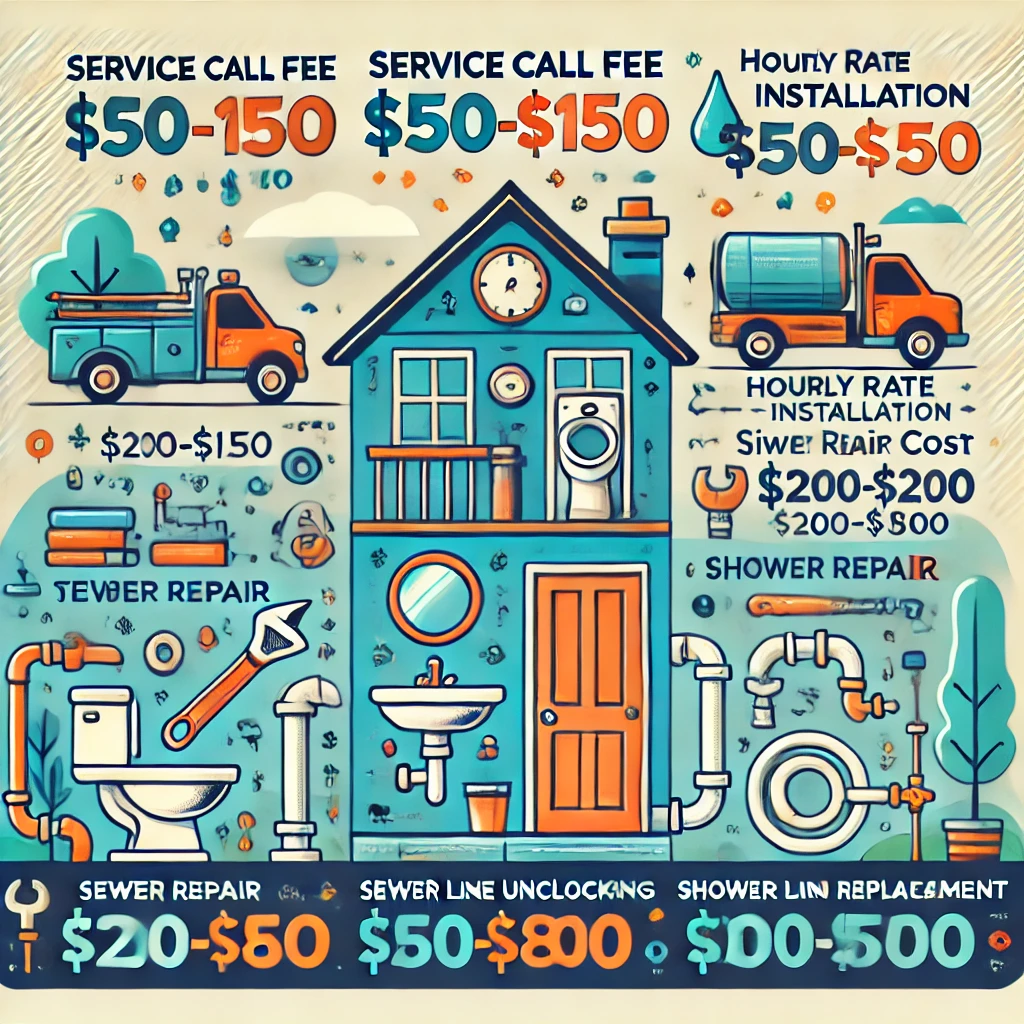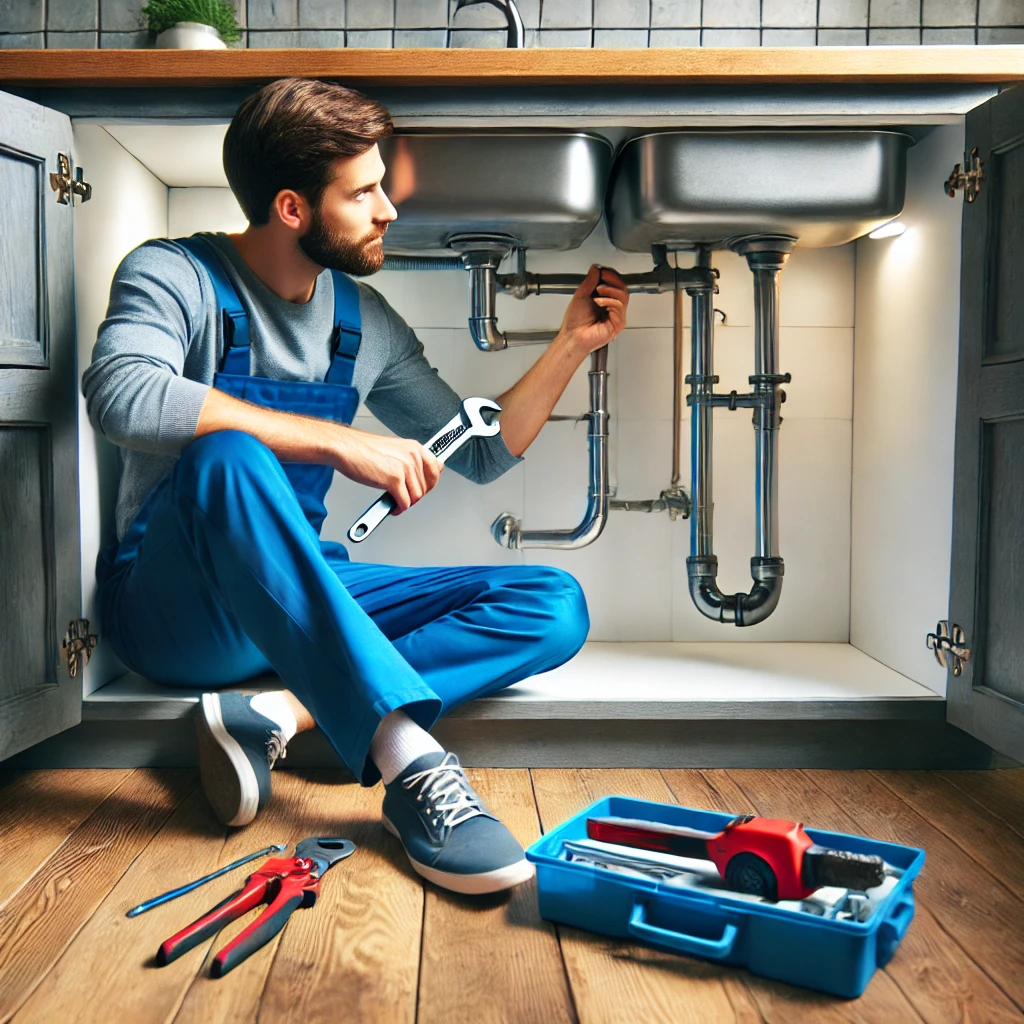Hiring a plumber in California can be a significant investment, but understanding the Plumber Costs in California involved can help you budget effectively. Here, we break down the average hourly rates, typical service charges, and additional factors influencing plumbing costs in California.
What Are the Typical Charges for a Plumber’s Service Call?
Affordable Plumbers in California typically charge between $50 to $150 for a service call. This fee covers the cost of travel and an initial assessment of the issue. Additional labor and materials will increase the overall price.

For example, if a minor leak requires only a quick fix, you might only pay the service call fee and minimal labor costs. However, complex issues like diagnosing hidden leaks or significant pipe damage can lead to higher charges as the plumber spends more time on the job. To get the best value, always ask for an upfront estimate when scheduling a service call.
Service call fees also vary depending on the plumber’s experience and the time of day. Emergency or after-hours services usually carry higher rates, with charges ranging from $100 to $250. Planning non-urgent repairs during regular business hours can help minimize costs.
How Much Does It Cost to Install a Toilet in California?
Installing a new toilet in California usually costs between $200 and $500. This range depends on factors like the type of toilet, labor complexity, and additional plumbing work required.
Standard installations, which involve replacing an old toilet with a similar model, are generally at the lower end of this price range. However, if the installation requires relocating plumbing lines or addressing underlying issues such as a damaged flange or uneven flooring, the costs can climb significantly.
Additionally, the type of toilet selected plays a role in determining costs. High-efficiency or smart toilets with advanced features like bidets or automated flush systems are more expensive to install due to the added complexity and higher price of materials. Always discuss these factors with your plumber to understand the total cost.
How Can You Accurately Estimate Plumbing Costs?
To estimate plumbing costs effectively, consider key factors such as the scope of work, labor rates, and material requirements. Larger or more complex projects, like re-piping a house, naturally require more labor and specialized tools, which increase the overall cost.
Plumbers in California typically charge $75 to $250 per hour, so the duration of the project is a major factor. Additionally, specialty fixtures or premium materials can add significantly to your bill. Requesting detailed quotes from multiple plumbers will help you compare and make an informed decision.
One can also consider the following:
- Hourly Rate: Most plumbers charge $100 to $200 per hour.
- Service Call Fee: Add $50 to $150 for the visit.
- Parts and Materials: Include costs for fixtures and tools, often ranging from $10 to $500.
- Job Complexity: Complex repairs, like re-piping, will add significant labor hours.
You can also request a detailed written estimate to ensure transparency. For larger projects, such as bathroom remodeling, plumbers often provide a breakdown of labor and material costs. This detailed approach helps you understand the scope of work and plan your budget effectively. Be sure to inquire about potential additional charges, such as disposal fees or permits.
Keep in mind that unexpected complications can increase costs. For example, discovering corroded pipes or water damage during a job might lead to additional repairs. Setting aside a contingency budget of 10-15% for such surprises can be helpful.
Why Are Plumber Hourly Rates So High?
Plumbers charge high hourly rates due to:
- Expertise and Certification: Extensive training and licensing requirements.
- Tools and Equipment: Specialized tools add to operational costs.
- Demand: High demand for plumbers, especially during emergencies.
- Insurance: Liability and worker’s compensation insurance increase overhead costs.
The licensing process ensures that plumbers are well-equipped to handle complex plumbing systems safely and efficiently. Their work directly impacts critical infrastructure like water supply and sanitation, which justifies their compensation.
Additionally, plumbers often invest in expensive equipment like pipe cameras, hydro jetters, and leak detection tools. These tools improve efficiency but come at a high cost. Combined with the expenses of maintaining a business, such as insurance, transportation, and continuing education, these factors contribute to higher hourly rates.
What Is the Cost of Fixing a Pipe in California?
Repairing a pipe can cost between $150 and $800, depending on factors like the pipe’s location, material, and extent of the damage.

Simple repairs, such as fixing a visible leak in an accessible area, typically fall on the lower end of the price range. However, repairs involving underground or wall-embedded pipes require more labor and specialized equipment, increasing costs.
The material of the pipe also plays a role in pricing. Copper pipes, for example, are more expensive to repair or replace than PVC pipes. When requesting a quote, be sure to ask your plumber about alternative materials that may lower the overall cost while maintaining durability.
Can Plumbers Earn $50 or More Per Hour?
Yes, experienced plumbers in California can earn $50 or more per hour, especially in cities with higher living costs like Los Angeles and San Francisco.
This earning potential is influenced by factors such as experience, specialization, and geographic location. Plumbers with expertise in niche areas like gas line installation or sewer system design often command higher hourly rates. Additionally, self-employed plumbers or those running their own businesses can set their rates to reflect their skills and reputation.
The high demand for plumbing services also contributes to competitive wages. Homeowners and businesses often require urgent plumbing repairs, allowing skilled plumbers to negotiate higher rates, particularly for after-hours or emergency services.
How Much Does It Cost to Unclog a Main Sewer Line?
Unclogging a main sewer line typically costs between $300 and $1,000. The price varies based on the severity of the clog and whether specialized equipment is needed.
For minor clogs, plumbers often use a plumbing snake or auger, resulting in lower costs. Severe blockages, such as tree root intrusion, may require hydro jetting or excavation, significantly increasing the expense.
Preventative maintenance can reduce the likelihood of mainline clogs and their associated costs. Regularly scheduling drain cleaning and avoiding flushing non-biodegradable materials can save you money in the long term.
What Should Be Included in a Plumbing Quote?
A detailed plumbing quote should include:
- Description of Work: Specific details about the job.
- Labor Costs: Estimated hours and rates.
- Materials: Itemized list of required parts and fixtures.
- Timeline: Expected start and completion dates.
- Guarantees: Warranty details for the work.
A well-prepared quote ensures transparency and helps avoid misunderstandings. For larger projects, such as kitchen renovations or re-piping, requesting multiple quotes allows you to compare pricing and services among contractors. Be wary of unusually low estimates, as they may indicate subpar materials or workmanship.
When reviewing a quote, clarify whether it includes disposal fees, permits, or additional charges for unforeseen complications. Understanding these details upfront can prevent disputes and unexpected expenses.
How Much Does It Cost to Replace a Shower Drain?
Replacing a shower drain can cost between $200 and $600, depending on the accessibility and complexity of the job.

Easily accessible drains with standard fittings are more affordable to replace. However, if the job involves removing tiles or addressing water damage, the costs increase. High-end materials, such as stainless steel or brass drains, also add to the total expense.
To minimize costs, consider combining this repair with other bathroom renovations. Plumbers often provide discounts for bundled services, making it more economical to address multiple issues simultaneously.
Where Do Plumbers Earn the Most Money?
Plumbers earn the highest salaries in states with high living costs, including:
- California: Average hourly rate of $30 to $50, with experienced plumbers earning more.
- New York: Similar rates to California.
- Hawaii and Alaska: Higher wages due to logistical challenges and demand.
Urban areas with dense populations and aging infrastructure also contribute to higher wages. For example, plumbers in metropolitan cities like San Francisco and New York often handle complex systems requiring specialized skills, justifying their premium rates.
In addition to geographic factors, plumbers with certifications in advanced areas such as backflow prevention or green plumbing solutions can command higher wages nationwide.
Do Plumbers Charge Flat Rates or Per Hour?
Yes, many plumbers provide flat-rate pricing for specific jobs, such as:
Toilet Installation: $200 to $500.
Water Heater Repair: $500 to $1,500.
Flat-rate pricing offers transparency and allows customers to budget effectively. However, ensure that the quote includes all potential costs, such as materials and additional labor. Some plumbers may offer discounts for straightforward jobs or bundled services, so it’s worth discussing these options when scheduling work.
For larger projects, plumbers often prefer an hourly rate to account for unforeseen complexities. Understanding the pricing structure helps you choose the best option for your needs.
How Much Does It Cost to Replace a P-Trap?
Replacing a P-trap under a sink typically costs between $150 and $300, depending on the material and complexity of the installation.
Standard P-traps made of PVC are less expensive to replace than those made of metal, such as chrome or brass. The accessibility of the trap also affects labor costs. For instance, replacing a P-trap in a confined space, like under a pedestal sink, may require more time and effort.
In addition to replacement costs, consider the benefits of upgrading to a more durable material or installing features like a clean-out plug. These enhancements can improve functionality and reduce maintenance needs over time.
Conclusion
The cost of hiring a plumber in California varies widely based on the job, location, and complexity. By understanding the average rates and factors influencing pricing, you can make informed decisions and avoid unexpected expenses. Always request a detailed quote to ensure transparency and value for money.
